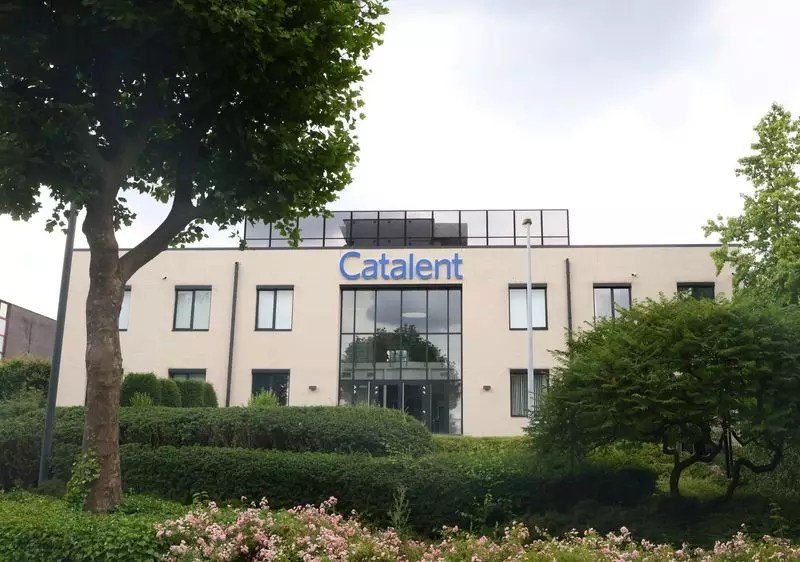The ongoing discourse surrounding corporate acquisitions in the pharmaceutical sector has taken a new turn with the proposed $16.5 billion acquisition of Catalent by Novo Holdings, the parent company of Novo Nordisk. As discussions unfold, concerns regarding competition, particularly in the weight loss and gene therapy markets, have intensified, leading multiple consumer advocacy groups and labor unions to voice their opposition. The potential implications of such an acquisition demand careful examination, not only from a regulatory perspective but also in terms of how it might shape the future of drug development and availability.
On Thursday, a coalition comprising the U.S. Public Interest Research Group, the Service Employees International Union (SEIU), and other influential consumer advocacy organizations submitted a letter to the Federal Trade Commission (FTC), urging them to block the deal. These groups argue that the acquisition poses a serious threat to competition amongst pharmaceutical firms that are in the process of developing their own GLP-1 medications, similar to Novo’s highly successful Wegovy—an injectable weight-loss drug. Public figures such as U.S. Senator Elizabeth Warren have also raised alarms, echoing concerns that have been articulated by various stakeholders in the healthcare landscape.
The argument surrounding this acquisition centers on its potential to stifle competition. Companies like Amgen, Pfizer, Roche, and AstraZeneca have been identified as firms that could face significant challenges in bringing their own weight-loss solutions to market if Novo gains control over critical manufacturing capabilities. With a diminished pool of options for manufacturing and expertise, questions arise not only about current product availability but also about the future viability of alternative treatments.
Consumer advocates and labor unions have highlighted that the acquisition may inhibit competitors’ ability to secure the necessary manufacturing expertise and capacity. This concern extends beyond existing products and into the future of drug development. Firms like Viking Therapeutics, Structure Therapeutics, and Sun Pharma are also in the GLP-1 drug development sphere and could find themselves at a disadvantage if this acquisition proceeds unchallenged.
Novo Holdings has taken a firm stance, asserting that the transaction will enhance competition rather than diminish it. They argue that the acquisition will improve the supply chain for Wegovy and will benefit not only the company but also the patients who rely on these essential medications. In this light, it becomes imperative to critically analyze whether such claims hold weight against the backdrop of potential monopolistic trends.
At the core of the debate are the manufacturing capabilities associated with Catalent’s plants. The deal involves Novo Holdings divesting three of Catalent’s factories located in Italy, Belgium, and the United States—facilities equipped for sterile injection pen production. Despite the company’s assurances that existing contracts will be honored and that no competitive GLP-1 products are produced in these plants, skepticism remains among advocacy groups about the broader ramifications of the acquisition on drug manufacturing and distribution.
The groups have expressed strong reservations about the potential consequences for Catalent’s capabilities in producing innovative gene therapies. Currently, Catalent is involved in critical contracts producing gene therapies for major pharmaceutical companies like Sarepta Therapeutics and Novartis. Although Sarepta has stated there should be no impact on their ongoing contract, concerns linger regarding how Novo Holdings’ ownership could ultimately influence the capacity for future innovation in this burgeoning field.
In a landscape where healthcare innovation and access to medications are of paramount importance, the reaction from the FTC will be pivotal. Advocacy groups emphasize that the implications of this acquisition reach far beyond the immediate concerns regarding competition; they could fundamentally reshape the future of pharmaceutical development. David Balto, an antitrust attorney representing the concerned parties, insists that the impacts of new therapies, including gene therapies, need to be critically assessed by regulators.
The path forward is uncertain, as both Novo Holdings and Novo Nordisk express their commitment to navigating the regulatory processes while working closely with authorities. However, the growing apprehension among consumer groups bears witness to the complexities surrounding pharmaceutical mergers and their potential to not only streamline operations but also to create significant barriers to entry for emerging competitors.
The acquisition of Catalent by Novo Holdings raises significant questions about competition in a market where innovation must thrive. As stakeholders await the FTC’s decision and the eventual outcome of this high-profile acquisition, it is crucial for all parties involved to recognize the delicate balance between corporate interests and the pressing need for accessible, diverse treatment options for patients.


Leave a Reply